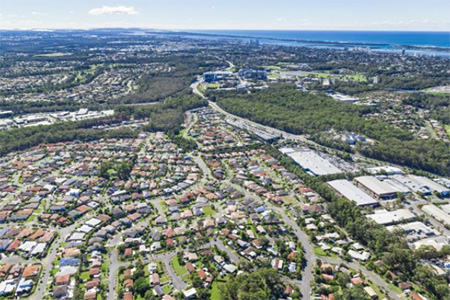The Ultimate Guide To Buying Property With Super
If you’re interested in using your super to invest in property in high-growth areas of Australia, it can be daunting and difficult to know where to start. At Corbwood & Associates, our role is to coordinate each step and hold your hand through the entire process to ensure a smooth purchase. Our aim is to help our clients achieve the best return on their investment. The choices you make today can determine the financial outcomes you can accomplish tomorrow, as well as impacting the length of time it may take you to retire successfully.
In today’s high-cost age, investing in property with your super can be a great way to ensure you will enjoy the well-funded retirement that you deserve. However, investing in real estate with your Self Managed Super Fund can be complicated and a hard process to navigate for those who aren’t experienced with SMSF, or aware of all the regulations that come with it.
Over the years, the team and professional partners at Corbwood & Associates have created a streamlined process to navigate the sometimes tricky world of SMSFs and property investing. We’ve also learned through experience how to succeed in building a property portfolio that provides dividends for years to come.
As an introduction to how it all works, we’ve put together some information to give you an insight into the process. We hope it helps you make an informed choice about whether to choose Corbwood & Associates as your trusted company to assist you with investing your self managed super fund in property.
To take the next step, contact our friendly team at Corbwood & Associates to find out how we can help you to secure your financial future today.
What Is a Self Managed Super Fund (SMSF) & How Does It Relate To Property?
The Benefits Of Using A Self Managed Super Fund To Buy Property
What Are The Rules When Using A Self Managed Super Fund To Invest In Property?
Factors To Consider When Investing Super In Property.
What Professional Services Do You Need When Setting Up A Self Managed Super Fund To Buy Property?
Questions To Ask Your Advisers When Using Super To Buy Property.
What Happens After You Buy A Property With A SMSF?
Ready To Get Started Buying A Property With Super?
What Is a Self Managed Super Fund (SMSF) & How Does It Relate To Property?
A Self Managed Super Fund (SMSF), is simply an alternative investment strategy to ensure you have the funds you need for your retirement. As opposed to other funds, this type of fund is run and managed by the trustees – that is, yourself. You can have up to four trustees named on the fund, who are all responsible for management, tax, and legal requirements.
This means you’re able to choose how your money is invested, whether that’s shares, property or other methods. This type of fund does require more management, and compliance in terms of the legal and tax stipulations, however the financial advisors that Corbwood & Associates work with will be able to assist you with this process.
For a Self Managed Super Fund to really work and provide the return that you require for your retirement, you need to carefully think about what level of income you will need once you retire, and how you will choose investments that will achieve this for you.
That’s where purchasing property with your SMSF comes in.
Using your Self Managed Super Fund means you can use your accumulated funds to purchase an investment property that can be rented out until you retire, offering a steady stream of passive income into your SMSF for many years to come.
If there is not enough money in your SMSF to outright purchase a property, Corbwood & Associates can connect you with financial advisors in our network who can walk you through the process of taking out a loan through your SMSF and borrowing against the fund to purchase property. It’s important to remember that borrowing through an SMSF is completely separate to your personal finances, with different assessment criteria.
Book a Free Consultation
The Benefits Of Using A Self Managed Super Fund To Buy Property
There are numerous benefits to using your SMSF to invest in property. Property Investment is often regarded as a strong long-term strategy, often carrying less risk than shares or cash. It allows you to supplement your super fund and provide the retirement that you deserve.
Having a Self Managed Super Fund allows you to leverage the super that you do have by borrowing money from the bank, making positive returns on monies that were never yours in the first place. Additionally to this, investing in property has substantial tax implications, ones which can be used extremely favourably to the investor’s advantage.
Property is a route taken by many investors looking for a secure, less volatile investment. While there is no guarantee that your investment property will grow in value over a given time period, historically speaking, property has always shown steady growth – even allowing for all the property market ups and downs you hear about.
Book a Free Consultation
What Are The Rules When Using A Self Managed Super Fund To Invest In Property?
The rules and regulations around using your Self Managed Super Fund can be quite complicated – which is why our network of associates are with you every step of the way to ensure the process goes smoothly and in line with regulations.
In short, using funds from your SMSF to purchase a property is not structured like a traditional property investment loan.
There are many rules and regulations around the type, style, age and even location of property you are able to get finance for through your Self Managed Super Fund.
The four major considerations when it comes to determining what properties can be purchased as an investment property through your SMSF are:
- Location and Demand
The property you’re considering must be in an area with a high rental demand – this is typically considered anywhere within a 50 kilometre radius of an Australian capital city or a 35 kilometre radius of a ‘major’ city. A major city is considered to have a population of 100,000 people or greater. The areas that fall into these categories typically have a vacancy rate of 1% or below, meaning that the rental demand is there for investors to purchase in that area.
- The Bank Has To Approve
When purchasing a property through your Self Managed Super Fund, as with any property, you need to talk to the bank. In terms of getting the bank’s approval, the property ideally is as new as possible, because:
- New properties typically have the lowest ongoing maintenance costs as the fixtures and amenities are in their best condition.
- They’re generally still held under builders warranty on the major structural components.
- Newer properties have a higher rental demand and greater tax depreciation benefits.
- These properties offer the most probable increased resale value.
A newly completed property, with high quality construction, in an area of high demand, will provide a greater investment opportunity. These types of properties mean both a higher tenancy rate, as well as the low probability of continuous cost to you.
- The Property Needs To Be Positively Geared
The property should be cash flow positive, meaning that the income from rent should be higher than the outgoings on the property. At the very least, the property should have a neutral cash flow, meaning the incomings and outgoings are relatively even. For example, if you invest in a property, it is suggested that you would look to secure a 4.7% rental yield or greater. Meaning you must receive 4.7% of the purchase amount back in rent each year at a minimum.
This can often make it difficult to choose an investment property in cities such as Sydney and Melbourne, where the rental yield is much lower, at 3% or less. Other areas of Australia, such as Brisbane, the Sunshine Coast, Newcastle, Adelaide, the Gold Coast, or even Hobart are better options for investors as they will offer a higher return on investment.
- No personal gain
The last criteria to consider is that you can’t see any personal gain from your investment property. This includes:
- You can’t live in the investment property, or install tenants who are known to you;
- You can’t complete any repair or maintenance work, this can only be done by licensed third party tradespeople;
- You can’t organise renting the property, this must be done by a licensed third party property management team;
- And finally, you can’t develop or improve the property – you can maintain the property to its current standards, but you can’t complete any renovations, build a second story or granny flat and so on.
Factors to consider when investing super in property?
When considering using a Self Managed Super Fund (SMSF) for your property investment, there are a range of factors you have to consider outside of the rules and regulations of the actual purchase. These factors should be taken into account when you’re planning your SMSF property investment and overall strategy.
So what are these factors?
- Cashflow
How will holding property in your SMSF affect your future cash flow after you retire? While your ongoing rental payments will be paid into your SMSF, it’s important to consider what will happen in the long term – whether you will continue on this path, or whether you will sell the investment property. This is why it’s important to get proper financial advice, as well as advice about the property market. You will want to ensure you’re still coming out ahead, even if something happens to rental or property prices in the future.
- Expenses
Following from the point above, what are the ongoing expenses of not only your SMSF, but your SMSF investment property? It’s important to have an idea of what these expenses will be so that you can consider them in your overall plan.
Some examples of your SMSF and property expenses include:
- Upfront SMSF set up costs
- Advice & legal fees
- Stamp duty
- Bank fees
- Ongoing property management fees
- Property maintenance costs
- Property/ landlords insurance
- SMSF Contributions
Many people who set up an SMSF will elect to redirect their employer super contributions to their fund as this can aid their cash flow and assist them with paying off their mortgages sooner, as well as, delaying the time frame with which they are required to pay tax on those contributions. These contributions work the same way as contributions to a non-self managed fund, in that you cannot access the money until your retirement age.
Book a Free Consultation
What Professional Services Do You Need When Setting Up A Self Managed Super Fund To Buy Property?
When it comes to purchasing a property, whether that’s your own home, your first home, an investment property, or property through your superannuation, we highly encourage people to consider the benefits of using experienced professionals.
You can leverage their knowledge and expertise within this area. Combining this with the necessary qualifications to practice in that field, means that they will be able to effectively help you navigate what is often a highly confusing process. Unfortunately, when it comes to an industry such as investments, many people decide that they know best and will be able to do this alone.
Usually, 70% of people who go down this path independently, suffer some stumbling blocks, an ache or hurdle at some point in the process. Many of them do not know how to resolve that problem, making it very time inefficient and cost-ineffective.
Here at Corbwood & Associates, we have assembled a team of each type of specialist required to purchase a property through a self managed super fund. By aligning all the necessary independent professionals, it means you can feel comfortable and confident that you’re taking the right steps. They ensure the actions you are taking leave you with the best possible outcome to benefit your financial future.
So, what are the major professional services that are essential to ensuring your success in purchasing a property?
Financial Planner
When purchasing your investment property, it’s important to talk to a financial planner to understand the ins and outs of setting up a self managed super fund. They need to ask questions to understand your financial situation and ensure you comprehend the implications of managing your own super.
As part of our network, we can connect you to our financial planners who will take the time to get to know you and your situation, then recommend the best path for you to take. They can even continue to work with you past the point of purchasing your investment property to ensure a strong financial future.
Mortgage Broker
The most critical individual during a property purchase is the broker, because like many, you may need to borrow funds in order to purchase the property. A mortgage broker will work with you to understand what borrowing capacity you will have available to you. Once a property is decided upon within that budget, the mortgage broker will help you apply for finance.
An important thing to remember is that borrowing money through an SMSF is completely different to a personal loan or mortgage. In fact, there are only two banks within the whole of Australia who offer this sort of lending. Here at Corbwood & Associates, we are extremely fortunate that our preferred broker has a fantastic relationship with one of these banks and is often able to secure interest rates for our clients much lower than those available through any other channel.
Real Estate Specific Conveyancer Or Solicitor
As well as having a high-quality mortgage broker, we highly recommend you have a conveyancer or solicitor who is experienced with investing in property through a Self Managed Super Fund. This is because they understand property contracts and look for any easements or overlays that may impact the property.
Real Estate or Property Agents Experienced With SMSF Investment Properties
Making sure that you work with an experienced real estate agent is crucial, especially when it comes to investing in property through a Self Managed Super Fund, as there are many regulations that revolve around what type of property you can invest in, such as age, type and the location of the property.
To ensure you find a high-quality real estate or property agent, we would encourage you to;
- Ask them their experience with locating SMSF properties
- Consider their reviews. You can go onto websites such as Rate My Agent or Google Reviews, to gain independent insights into how that person conducts themselves.
- Discuss the outcomes they have been able to achieve for previous clients looking to purchase or sell a SMSF.

Lastly, just make sure that you don’t put yourself in a position where you become so time-sensitive that you end up having to choose the first person who presents themselves to you, which often leads to selecting the best of, what can sometimes be, a bad bunch.
Questions To Ask Your Advisers When Using Super To Buy Property
Are you planning your financial future and unsure what questions to ask your professional advisers? Knowing the right or important questions to ask from the outset can ensure you and your advisor form a great relationship built on trust.
At your first meeting you should have a prepared list of questions to ask. These will differ from the questions you should ask during any annual reviews that you complete with your team.
Here are a list of questions that you should keep in mind when meeting with professionals such as financial planners, mortgage brokers, legal professionals or even real estate or property agents:
Are They Qualified and Accredited?
One of the most important questions to ask your advisors is about their qualifications. Ask for information about their credentials, training, licensing, memberships and what they are legally allowed to advise on.
What Is Their Investment Philosophy?
Ensure you’re on the same page with investment philosophy so that you can trust them through both good and bad markets. You should also agree on an investment style, so that your portfolio aligns with your values. From moderate to aggressive investing, each individual has a different appetite for risk. Clarify that your advisor thoroughly understands yours and makes recommendations based upon this.
How Will They Allocate Your Assets?
Discuss how your financial planner intends to invest your assets. As well as investment property, a diverse portfolio should include a variety of securities such as stocks, bonds, and mutual funds. This is a key risk-management strategy, and can bring in great returns for your SMSF.
Do They Use A Custodian?
A custodian is an independent brokerage firm that holds investments safely. You should always engage a financial advisor or mortgage broker that uses a custodian. This ensures your money is never kept in accounts controlled by the advisor.
How Will You Interact?
Perhaps most importantly, you’ll want to know how they will communicate with you and how often. Will you receive regular updates? Will these updates be via phone, email or in person? How accessible are they outside of these update periods?
Are They A Fiduciary Provider?
A fiduciary is legally and ethically bound to do the best for their clients at all times. They will focus on offering products that are suitable for you, not only those that offer them the best commissions or benefits for selling them.
What Are Their Fees and How Do They Get Paid?
Each of your advisors will all have different fee and payment structures. They may charge a percentage of the value of the assets they manage for you, an hourly rate or a single flat rate.
Ask for An Outline Of All Costs
In addition to the fees mentioned above, there will be other costs associated with accounts or investments you set up. It is vital you are across all these fees and what they will cost you over time.
Book a Free Consultation
What Happens After You Buy A Property With SMSF?
Once you’ve purchased your property through your SMSF, your fund must remain compliant. This means, amongst other things, lodging a tax return and audit every single year to ensure that the sole purpose stipulations of having a self managed super fund are met.
You will need a third party property management service to handle the details of tenanting your property – managing tenants, organising rent and inspections, and so on. Should you utilise the services of Corbwood, our preferred Property Management Associate will take care of all of this for you. Once this is put in place, the only thing left to do is continue to ensure you’re paying these taxes and fees, and liaise with any financial advisors you’ve retained to ensure your fund is growing.
Ready To Get Started Buying A Property With Super?
The Corbwood & Associates team are here to educate, support and inspire people in Australia to use their self managed super fund to purchase an investment property, in order to be able to achieve the brighter future that they’re looking for.
Our approach to wealth creation is holistic. We have years of combined experience, allowing us to create a streamlined process with our trusted associates, that allows you to navigate the market effectively, while being supported by experts in each relevant field.
Most importantly, Corbwood & Associates is a people-first organisation. We exist solely to better the financial future of everyday Australian families. We are proud to say that we have now assisted thousands of people across the country purchase an investment property through a self managed super fund, to strengthen their future into retirement.
We would love to see if we can help you do the same, so please get in touch with our team today.










